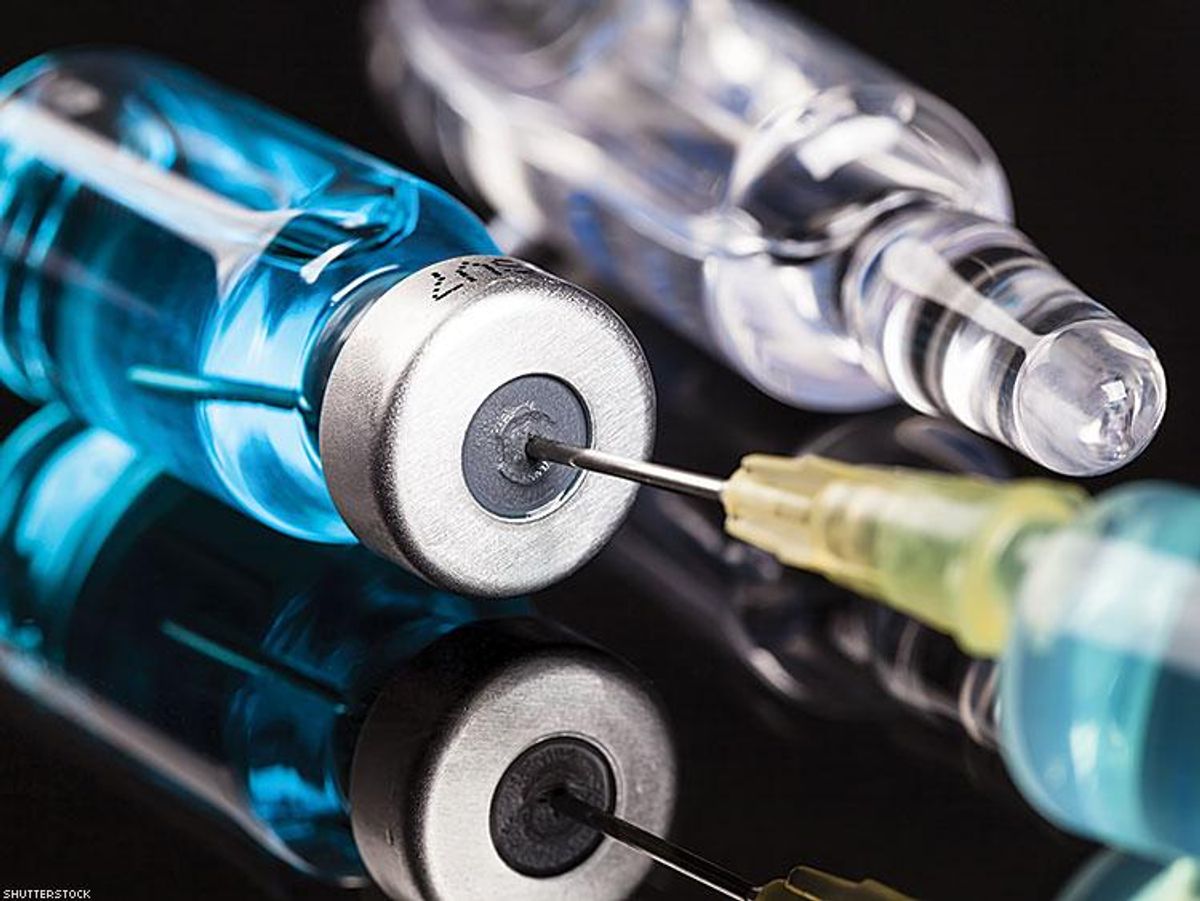Being a gay man diagnosed with HIV in 2012, there isn’t much I can complain about when it comes to treatment. After the hell that so many went through in the early years, I feel pretty damn lucky to pop my pill once a day and rest assured that my viral load is undetectable and my body is healthy. Still, no matter how healthy I may feel, my daily medication reminds me that somewhere in my body there is a disease. And for many living with HIV, this little reminder carries a stigma they would rather avoid altogether, even at the cost of their health.
Some may think today’s generation should be happy with what we’ve got. Forgive me, but I want more. This month, ViiV Healthcare and Janssen Sciences Ireland (a division of Johnson & Johnson), announced that Phase III trials for a bimonthly HIV treatment injection would begin in mid-2016. This year, the two companies will be evaluating the commercialization of a long-acting formulation to be used as an injectable maintenance treatment for patients who have achieved viral suppression.
Injectable treatments have been the buzz in HIV treatment research for a while, but this announcement represents a tangible hope that a new form of treatment is within our grasp. In a few years, many people living with HIV might be able to throw away their pill bottles for good.
The current oral regimen continues to be a reason for poor adherence to treatment. The daily pill can feel like a symbol of second-class status. No matter how healthy I am, people still see someone whose health is subpar. In the U.S., the majority of people living with HIV are not able to stay on treatment and maintain viral suppression. The possibility of a bimonthly injection wouldn’t just improve adherence to medication and reduce transmission, it could revolutionize the lives of HIV-positive people.
Imagine being a young person and being told that you can still live a long and healthy life, but only if you adhere to this daily regimen with few to no mistakes. Sounds simple enough, but factor in trying to carry the enormous weight of HIV stigma and concealing your diagnosis to the outside world — as most initially try do — and you have 365 reasons to fail.
For so many, that bottle isn’t just medication, but an embarrassing reminder to yourself and others, that you contracted a virus that is avoidable.
That sounds harsh. HIV shouldn’t have to be something people are ashamed of. But what should be does not change the reality of the majority of people living with HIV who are utterly mortified and almost paralyzed by the idea of other people finding out their status.
Now, imagine being told that all it will take to keep you healthy is six doctor visits a year. Sure, it still may not be ideal, but what disease is? It is a hell of a lot better than the alternative. An HIV injectable treatment represents an opportunity to resume life knowing that you are virally suppressed even if you are not quite ready take on managing your virus full time. Today, managing HIV doesn’t just require a daily pill. It requires a person to develop an entirely new state of mind—one that requires an awareness of what it means to be positive today, the strength to fight instead of hide, and the willingness to accept the support of friends and loved ones. If that mindset were easy to come by, HIV wouldn’t remain the problem that it is.
An injectable treatment would remove the daily reminder of living with a disease that shouldn’t, but often does, hold people back. It would mean the freedom of waking up and going about your day without a surge of panic because you forgot to take your medication. It would mean removing my shackles to a pill bottle so sleepovers could be spontaneous, or packing for a vacation could be done with a little less stress. Frankly, an injectable treatment would simply mean a better life.
I’ll take it.












































































